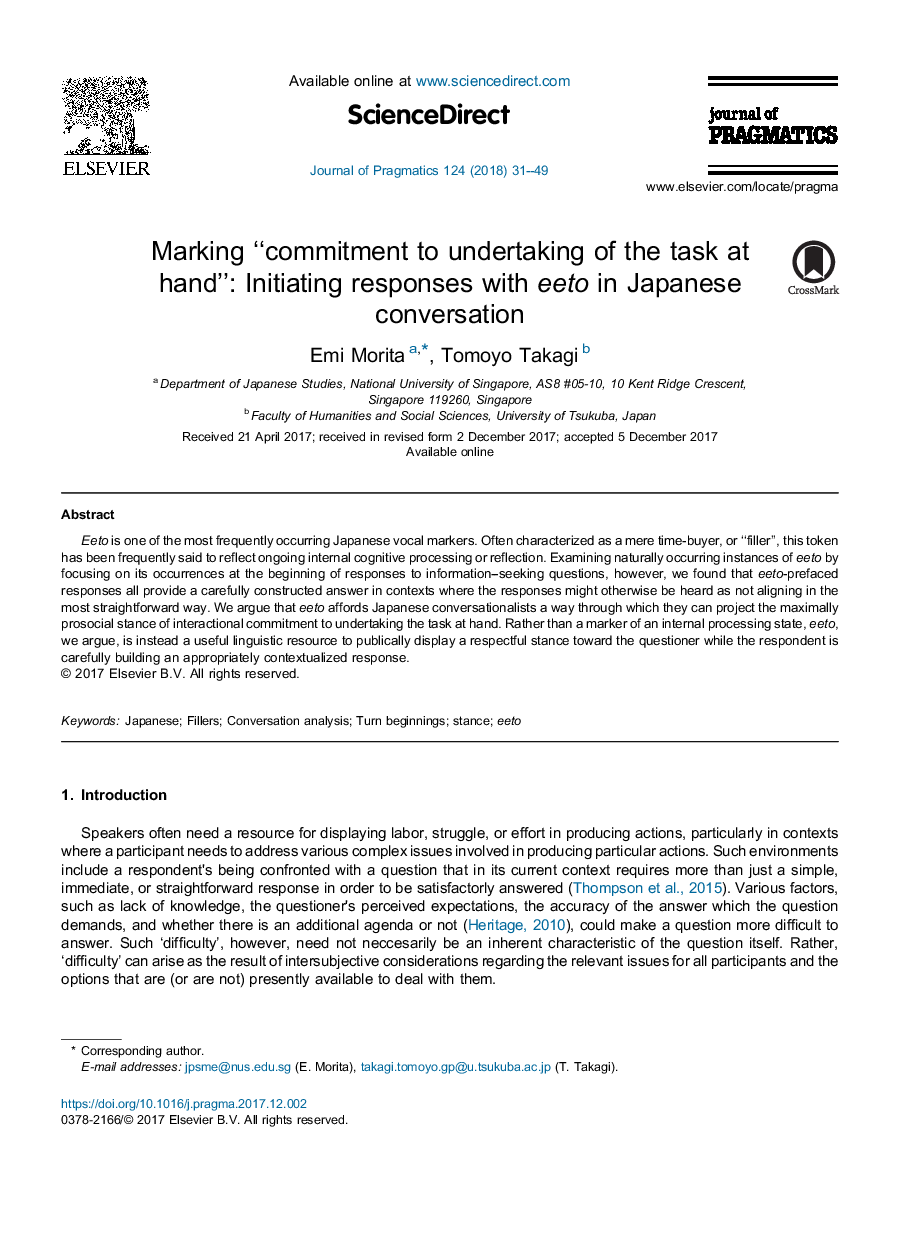| Article ID | Journal | Published Year | Pages | File Type |
|---|---|---|---|---|
| 7297594 | Journal of Pragmatics | 2018 | 19 Pages |
Abstract
Eeto is one of the most frequently occurring Japanese vocal markers. Often characterized as a mere time-buyer, or “filler”, this token has been frequently said to reflect ongoing internal cognitive processing or reflection. Examining naturally occurring instances of eeto by focusing on its occurrences at the beginning of responses to information-seeking questions, however, we found that eeto-prefaced responses all provide a carefully constructed answer in contexts where the responses might otherwise be heard as not aligning in the most straightforward way. We argue that eeto affords Japanese conversationalists a way through which they can project the maximally prosocial stance of interactional commitment to undertaking the task at hand. Rather than a marker of an internal processing state, eeto, we argue, is instead a useful linguistic resource to publically display a respectful stance toward the questioner while the respondent is carefully building an appropriately contextualized response.
Related Topics
Social Sciences and Humanities
Arts and Humanities
Language and Linguistics
Authors
Emi Morita, Tomoyo Takagi,
